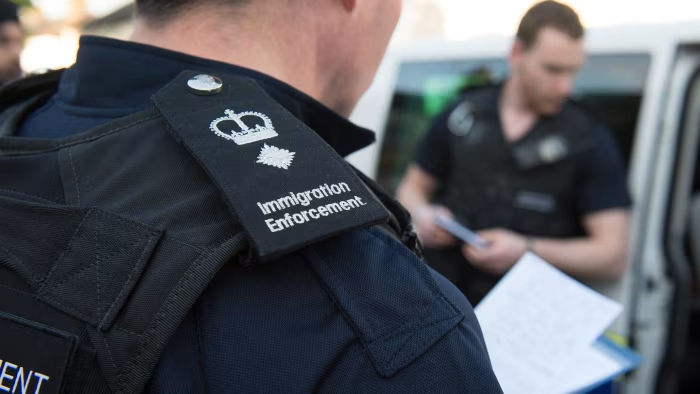For many immigrants in the United Kingdom, years or even decades of life here can still leave them without a valid visa or permanent status. Whether through overstayed visas, rejected applications, or family circumstances, thousands now find themselves living in legal limbo — long-term UK residents without papers.
Recent shifts in UK immigration policy, particularly under the government’s drive to reduce net migration, have raised fresh fears among undocumented communities. Yet pathways to legal status do exist — and understanding them is crucial for those hoping to remain in the country lawfully.
“We’re seeing an increase in long-term undocumented cases,” says Ana, 20 years London resident. “Many have lived in the UK for 10 or even 20 years — they work, have families, and contribute, but are technically without valid status. It’s critical they know their options.”
This report, based on legal expert advice and current UK Home Office guidance, outlines how such residents can seek to regularize their status in 2025.
The Reality of Undocumented Life in the UK
- An estimated 800,000 to 1.2 million unauthorized immigrants were living in the United Kingdom in 2017, according to new estimates from the Pew Research Center based on the latest available data. This figure has remained largely unchanged since 2014.
- Many arrived lawfully but overstayed visas or fell out of legal status due to changing personal or legal circumstances.
- Without papers, they face:
- Inability to work legally
- Barriers to housing
- Risk of detention or deportation
- Difficulty accessing healthcare and education
“These are not people trying to hide from society,” says Catherine, UK immigration barrister. “Most are deeply integrated but stuck in a system that offers few straightforward routes to status.”
Legal Pathways Available in 2025
-
Private Life Applications (Article 8 ECHR — Right to Private and Family Life)
For many long-term undocumented residents, this is the most common legal route.
I. Eligibility depends on: Length of continuous residence in the UK
II. Level of integration (family ties, community involvement)
Whether removal would cause serious hardship
General Rules:
- Adults who have lived 20 years continuously (even unlawfully) can apply.
- Children who have lived 7 years continuously can apply.
- Adults with 10+ years residence with strong UK ties may qualify even if under the 20-year threshold.
- Applicants must show genuine life in the UK — evidence matters: school records, rent payments, community references.
“The Home Office does consider Article 8 applications seriously, especially where children are involved,” says Taroni.
-
Family-Based Applications
Those with British citizen or settled family members may be able to apply for status even without a current valid visa.
Routes include:
- Parent of a British child
- Partner/spouse of a British citizen or settled person
- Adult dependent relatives
In many cases, even those previously refused can succeed with fresh evidence and good legal representation.
“We’ve seen success for parents of British children, even after years undocumented,” says Richard Harris, legal officer at Robert Walters Group.
-
Long Residence / 10-Year Rule
While intended for those with lawful residence, some undocumented applicants with mixed immigration histories may still qualify under the Long Residence rule if they can prove 10 years continuous lawful stay before falling out of status — and that removal would be disproportionate under Article 8.
Legal advice is strongly recommended here.
-
Asylum and Humanitarian Protection
For some, the correct pathway may be an asylum claim or application for humanitarian protection — particularly for those facing risk of persecution, trafficking, or serious harm if returned.
In 2025, the UK’s asylum system is under strain — but viable claims still succeed, especially with proper evidence and legal support.
-
Discretionary Leave and Exceptional Circumstances
In rare cases, applicants may seek discretionary leave based on exceptional circumstances not covered by standard routes.
Success depends heavily on:
i. Strength of humanitarian arguments
ii. Support from MPs, charities, legal advocates
“This is not a first option — but for some with very strong UK ties and no other legal pathway, it can be a last resort,” says Taroni.
Key Challenges in 2025
- High Costs: Application fees + NHS surcharge total over £2,600 per person in many cases.
- Complex Evidence Requirements: Proving continuous residence and strong UK ties is vital.
- Limited Legal Aid: Free legal representation is scarce outside London.
- Hostile Climate: Current political rhetoric creates fear among undocumented residents.
“It’s essential for applicants to get legal advice early and to build a strong case,” says Harris.
One Nigerian-born woman, who requested anonymity, shared her story:
“I came to the UK in 2011 on a student visa. My visa expired in 2013, but I stayed. I married a British man — we have three children. For years I lived in fear. Last year, with help, I applied based on private life. I now have leave to remain. I can finally breathe.”
Experts stress that while the process is challenging, pathways do exist — and success is possible.
“Many think they have no options — that’s not true,” says Taroni. “But you must act — and you must get proper help.”
As the UK government intensifies efforts to control migration, undocumented residents face growing uncertainty. But the law still provides avenues to secure status for those who qualify — and for those willing to fight for their right to remain in the country they call home.



